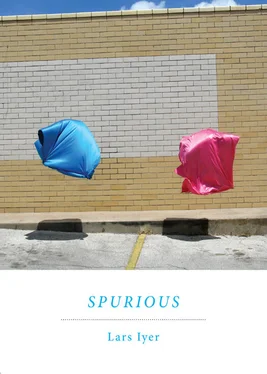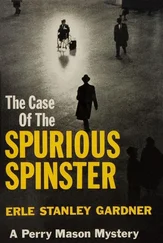I’m filling in my esteem indicators, I tell W. — ‘Oh yes, what are they?’ He could do with a laugh, says W. ‘How about humiliation indicators? Or soiling yourself indicators?’, says W. ‘Write about the history of your humiliations’, says W. ‘Write about dragging the rest of us down. Write about spoiling it for everyone, because that’s what you’ve done’.
I hold my pen like an ape, W. has always observed, and no doubt I type like an ape too, my fingers slightly too large for the keys. And my book reads as though it were written by an ape, which is the worst thing of all, W. says.
‘Once you were happy on your savannah’, W. says. ‘You were happy romping about with the whole horizon before you. What made you think you could read, let alone write? How did you end up mistaking yourself for a writer?
‘Behold the idiot! That’s what your book proclaims’, says W. ‘Wouldn’t you like to go back to your savannah now? Wouldn’t you like to hoot and romp with your fellow apes?’
Why do I write such bad books? W. wonders. It’s not even that they’re bad at the level of content, which of course they are. The basics aren’t even in place. The fundamentals. — ‘You can’t write’, says W. ‘You’re incapable of placing one word after another’.
Of course, my book was a lesson to him, W. says. His book, he decided, would be as good at the level of style as mine is bad, which is not to say it would be worthwhile at the level of content . But at least it would be legible, says W. At least it would pass the minimum qualification for what would count as a book.
W.’s reading the notes he took ten years ago. — ‘They’re better than anything I could do now’, he says, sending me them. I agree: they are good. ‘I had no girlfriend, barely any work, no television, and above all, no friend called Lars …’ But didn’t W. credit me with freeing him to write? Didn’t I save him from years of writer’s block? All I taught him was shamelessness, W. says. Compromise and half measures — that’s all I taught him.
W. reminds me of the Hasidic lesson Scholem recounts towards the end of his great study of Jewish mysticism.
When he was confronted by a great task, the first Rabbi, about whom little is known — his name and the details of his life are shrouded in mystery — would go to a certain place in the woods, light a fire and meditate in prayer; and what he wanted to achieve was done.
A generation later, the second Rabbi — his name is not known, and only a few details have been passed down concerning his life — confronting a task of similar difficulty would go to the same place in the woods, and say, ‘We can no longer light the fire, but we can still speak the prayers’. What he wanted to achieve was done.
Another generation passed, and the third Rabbi — whose name is known to us, but who remains, for all that, a legendary figure — went to the woods and said, ‘We can no longer light the fire, nor do we know about the secret meditations belonging to the prayer. But we do know that place in the woods to which it all belongs — and that must be sufficient’. And what the Rabbi wanted to achieve was done.
Another generation passed, and perhaps others, who knows, and the fourth Rabbi — his name is well known, and he lived as we do — faced with a difficult task, merely sat in his armchair and said: ‘We cannot light the fire, we cannot speak the prayers, we do not know the place, but we can tell the story of how it was done’. And that too was enough: what he wanted to achieve was done.
There was a fifth rabbi Scholem forgot — well, he wasn’t really a rabbi, says W. His name is Lars, about whom all too much is known. He forgot where the woods were, and that he even had a task. His prayers, too, were forgotten; and if he meditated, it was upon the fate of Jordan and Peter André. He set fire to himself and his friend W. with his matches and the woods were burned to the ground. And then the whole world caught fire, the oceans boiled and the sky burned away and it was the end of days.
The washing powder has contracted into great wet lumps, I tell W. The salt is a single wet block. The sugar, the same. Where tins stand for an hour they leave a rusty mark. Dirt from the ceiling crumbles over everything. And it’s so cold, so wet, the air full of spores. And salt covers the plaster like a beard. Salt in large flakes that you can rub away.
Leave kitchen roll standing for an hour and it’s soaked. Leave a dry dishcloth on a worksurface and it’s sodden. How wet is the air? Water condenses along the walls. And there are great green splodges where the mould is growing. You can’t rub them away. They go deep: great, green splodges like nebulas.
I went out there again just now to remind myself, I tell W. Is it really that bad? It is that bad. Is it really that wet? Yes, it is that wet. Does dirt still fall from the ceiling? It falls, and constantly. I take a breath. Am I really breathing in spores? I’m breathing in spores. And I touch the wall above the sink — is something really running off on my hands? I look at them. There’s something brown. Something wrong. There’s a new process beginning on the wall, I tell W. Something horrible.
You can’t be alone to experience the Messiah, W. says. Not really. And you can’t be sober. The Messiah is drunk, says W. Or he’s what drunkenness allows. Anyone can be the Messiah when he’s drunk, W. says. Of course, he might not know it. W.’s not the Messiah for himself , W. says, just as I am not the Messiah for myself . He’s the Messiah for me, and I’m the Messiah for him. Do I think of him, W., as the Messiah? W. asks. Well, I should.
I am a sullen drinker, W. observes. Not for the whole evening, he admits — not even for most of it, but the time always comes when I refuse to say anything at all and slump down in my chair. — ‘That’s when your immense belly becomes visible’, says W., ‘during the slump’. It’s like Moby Dick, says W. Vast and white and rarely seen. But there it is in the slump. It always amazes him, says W. It amazes everyone.
I’m not like him, W. notes, for whom every conversation is on the verge of becoming messianic. W. likes to journey with his interlocutor through the apocalyptic and towards the messianic, he says. He believes in his interlocutor, not like me. He believes in conversation. I’m slumped, drunk and silent at one end of the table, W. says, while he is waiting for the Messiah at the other.
Anyone might be the Messiah, W. says. The Messiah might be me, says one Talmudic commentator. — ‘Are you the Messiah?’, W. asks me. Is he? It’s all to do with the logic of relations , W. says, his favourite topic. He is the Messiah for me just as I am the Messiah for him, not because of what each of us is for himself, but because of what we are for the other.
Is he the Messiah? Am I? The Messiah would never wear a shirt like that, W. says. He would never wear the trousers that are flapping round my ankles. The Messiah wouldn’t buy his clothes from Primark, says W., he’s sure of that.
Scholem says that there is a tradition of doubling the figure of the Messiah, W. tells me. The first Messiah belongs to the old world, and to the catastrophe that destroys the old world (messianism always entails catastrophe, W. observes). Every horror of the old world is concentrated in him. He can redeem nothing, and what can he desire but his own annihilation?
But then there is the Messiah ben David in whom all that is new announces itself, and who finally defeats the antichrist. He is the redeemer, W., says. He brings with him the messianic age.
Which one am I, do I think? says W. Which one is he? He can picture me, W. says, working at my desk, or attempting to work (or at least what I call work), covered in crumbs from the packed lunch I eat four hours early, surrounded by books by Schelling and Rosenzweig and Cohen, and by other books that explain Schelling and Rosenzweig and Cohen, and then by still other books with titles like The Idiot’s Guide to Jewish Messianism and Rosenzweig in Sixty Minutes .
Читать дальше












